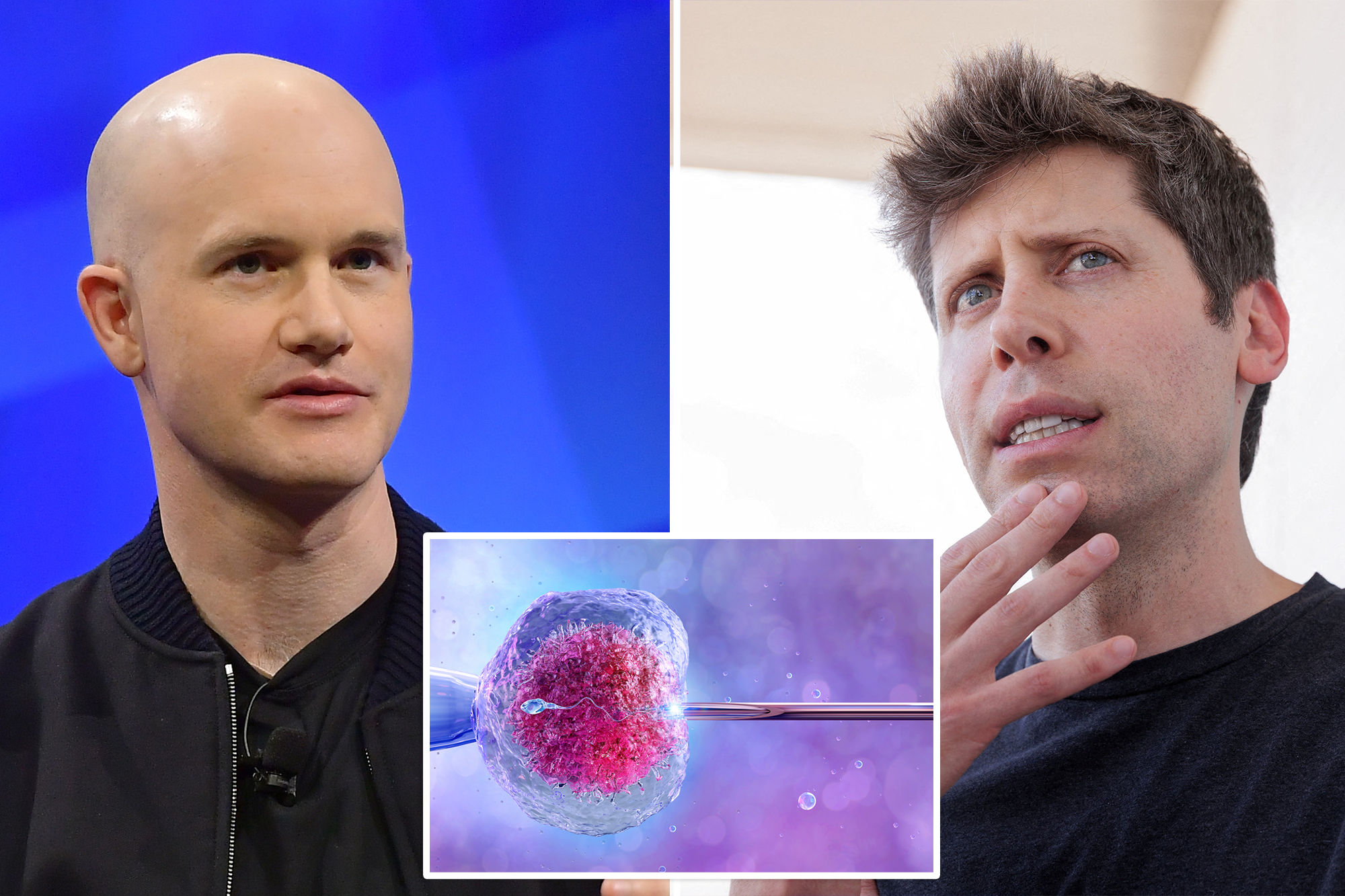Science
Tech Billionaires Fund Startup Pioneering Gene-Editing Research

A Silicon Valley startup named Preventive is advancing research into gene editing with the aim of eradicating hereditary diseases, despite existing legal prohibitions in the United States and many other countries. Backed by prominent tech figures such as Sam Altman of OpenAI and Brian Armstrong of Coinbase, the company has attracted $30 million in funding since its inception earlier this year.
Founded by gene-editing expert Lucas Harrington, Preventive is headquartered in San Francisco. The startup’s mission focuses on modifying human embryos to prevent genetic conditions before birth. This initiative has sparked significant ethical debate, particularly concerning the potential emergence of “designer babies,” as highlighted in a report by the Wall Street Journal.
Harrington emphasizes that Preventive’s research is strictly preclinical. He asserts the company is not preparing to implant edited embryos or working with couples for such purposes. “We are not trying to rush things,” he stated, adding that the focus remains on establishing the safety and transparency of embryo editing technologies. The company aims to publish its findings, regardless of whether they are positive or negative.
Despite the federal law that prohibits the Food and Drug Administration from considering applications for human trials involving genetically modified embryos, Preventive has explored the possibility of conducting research in countries where such practices may not be restricted. Reports suggest that jurisdictions like the United Arab Emirates have been considered, but Harrington clarified that this exploration is motivated by regulatory constraints rather than a desire to evade oversight.
The firm has brought on board advisers from the fields of reproductive medicine and genetics. Its website describes Preventive as a public-benefit corporation, which allows it to prioritize social good alongside profit. The company’s charter emphasizes its commitment to the “responsible advancement of genome editing technologies applied before birth to benefit humanity.”
This initiative parallels the controversial actions of Chinese scientist He Jiankui, who in 2018 claimed to have created the world’s first gene-edited babies. His work, which aimed to make embryos resistant to HIV, led to his imprisonment for three years due to illegal medical practices. The long-term effects of Jiankui’s modifications remain uncertain, as the identities of the children involved have not been disclosed.
Preventive’s launch comes amidst a growing interest in reproductive genetics within Silicon Valley. Other companies, such as Manhattan Genomics, co-founded by biotech entrepreneur Cathy Tie, and Bootstrap Bio, are also investigating embryo editing technologies. Both firms have faced scrutiny from bioethicists and regulators concerning their discussions around potential trials outside the United States.
Critics of Preventive’s approach warn that commercial embryo editing may flirt with eugenics. Fyodor Urnov, a director at the Innovative Genomics Institute at the University of California, Berkeley, expressed his concerns, stating, “They are either lying, delusional, or both.” Urnov cautioned against the dangers of unregulated efforts in “baby improvement,” highlighting the ethical implications of such advancements.
Supporters of Preventive argue that the focus is on addressing serious medical conditions rather than cosmetic enhancements. Harrington and his team emphasize that initial applications of embryo editing would aim to tackle severe monogenic disorders, such as cystic fibrosis or sickle cell disease. In cases where both parents carry a genetic mutation, traditional IVF methods often do not yield a healthy child.
The emergence of Preventive and its ambitious goals raises essential questions about the future of genetic engineering and the ethical considerations surrounding it. As the company forges ahead, the balance between innovation and responsibility will be closely monitored by the scientific community and the public alike. The Post has reached out for comment from Preventive, Altman, and Armstrong as this story develops.
-

 Science4 weeks ago
Science4 weeks agoIROS 2025 to Showcase Cutting-Edge Robotics Innovations in China
-

 Politics3 weeks ago
Politics3 weeks agoJudge Considers Dismissal of Chelsea Housing Case Citing AI Flaws
-

 Lifestyle4 weeks ago
Lifestyle4 weeks agoStone Island’s Logo Worn by Extremists Sparks Brand Dilemma
-

 World4 weeks ago
World4 weeks agoBravo Company Veterans Honored with Bronze Medals After 56 Years
-

 Health4 weeks ago
Health4 weeks agoStartup Liberate Bio Secures $31 Million for Next-Gen Therapies
-

 Science4 weeks ago
Science4 weeks agoArizona State University Transforms Programming Education Approach
-

 Health4 weeks ago
Health4 weeks agoTop Hyaluronic Acid Serums for Radiant Skin in 2025
-

 Top Stories4 weeks ago
Top Stories4 weeks agoIndonesia Suspends 27,000 Bank Accounts in Online Gambling Crackdown
-

 Sports4 weeks ago
Sports4 weeks agoMel Kiper Jr. Reveals Top 25 Prospects for 2026 NFL Draft
-

 Lifestyle4 weeks ago
Lifestyle4 weeks agoMary Morgan Jackson Crowned Little Miss National Peanut Festival 2025
-

 World4 weeks ago
World4 weeks agoHoneywell Predicts Record Demand for Business Jets Over Next Decade
-

 Sports4 weeks ago
Sports4 weeks agoYamamoto’s Mastery Leads Dodgers to 5-1 Victory in NLCS Game 2









